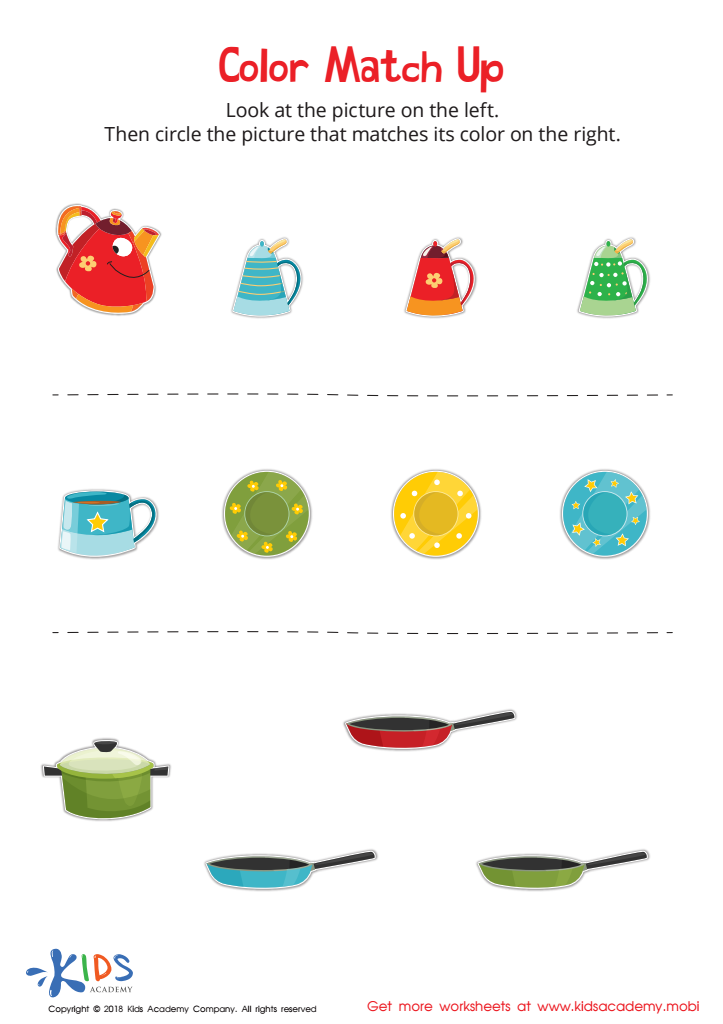Matching skills Normal Math Worksheets for Ages 3-5
7 filtered results
-
From - To
Encourage early math skills with our Matching Skills Normal Math Worksheets designed for ages 3-5. Tailored to develop foundational numeracy and cognitive abilities, these engaging worksheets introduce young learners to the basics of pattern recognition, number matching, and shape identification. Each activity is crafted to support early learning standards and make math fun and approachable. Perfect for parents and educators, these printable resources foster a love for learning while enhancing critical thinking and problem-solving skills in preschoolers. Discover a comprehensive collection aimed at making early math concepts easy to grasp for young minds.
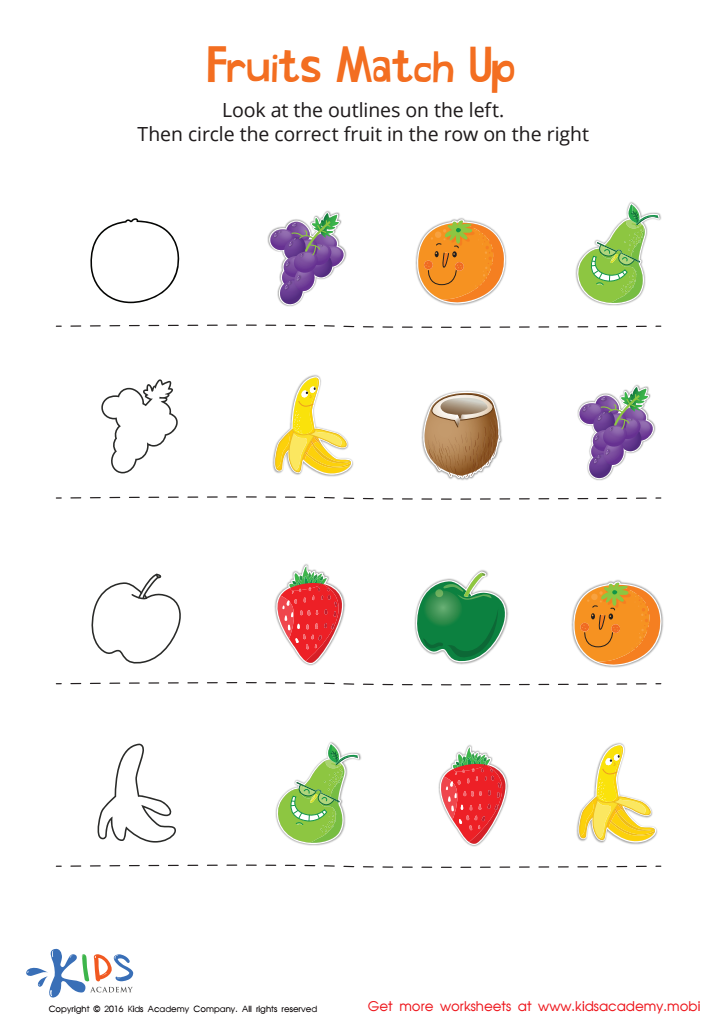

Fruits Match Up Worksheet
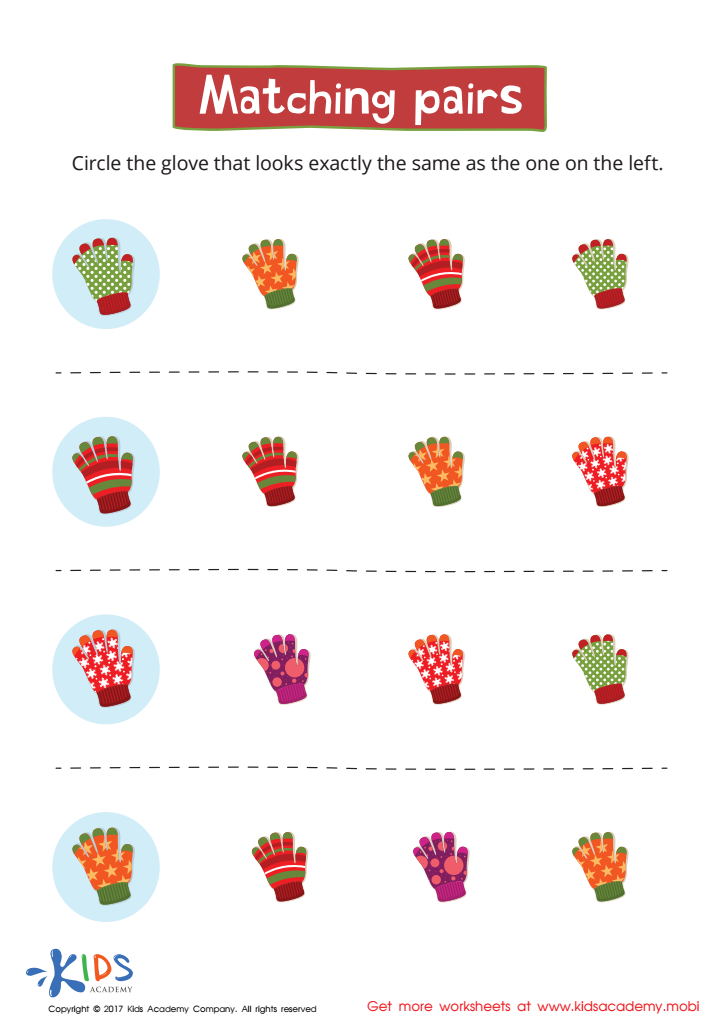

Matching: Matching Pairs Worksheet
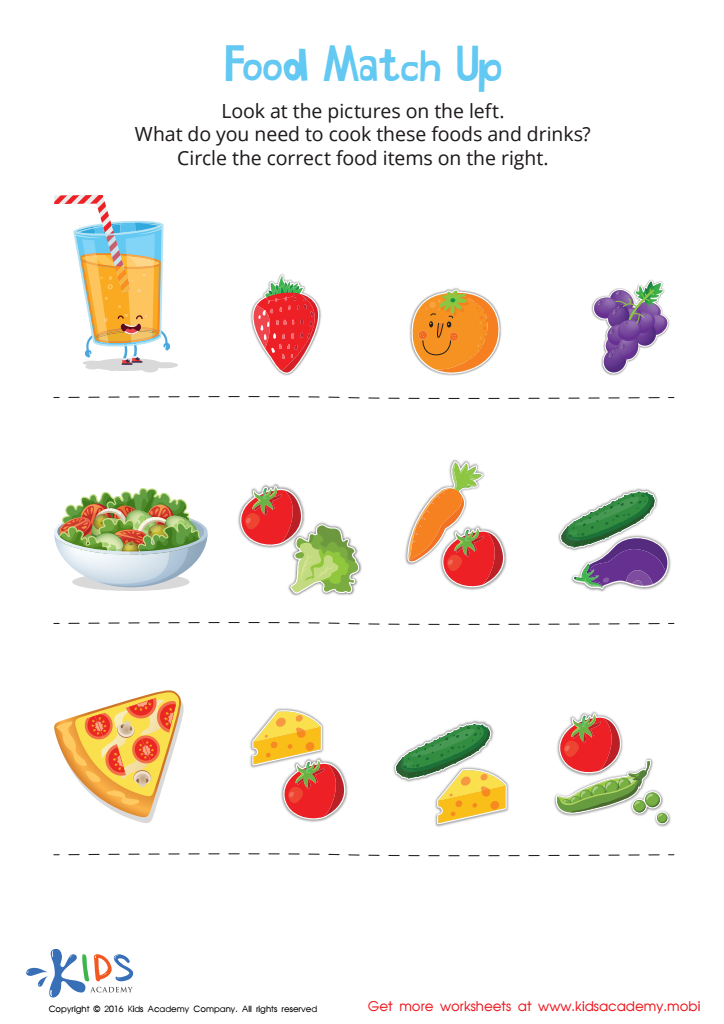

Food Match Up Worksheet
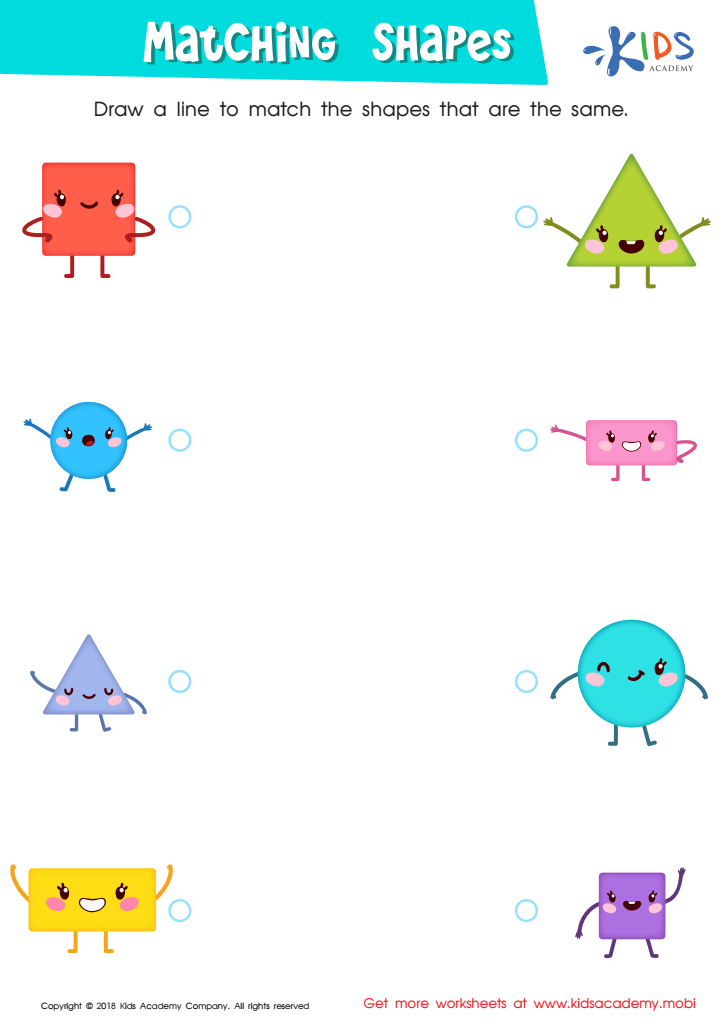

Matching Shapes Worksheet
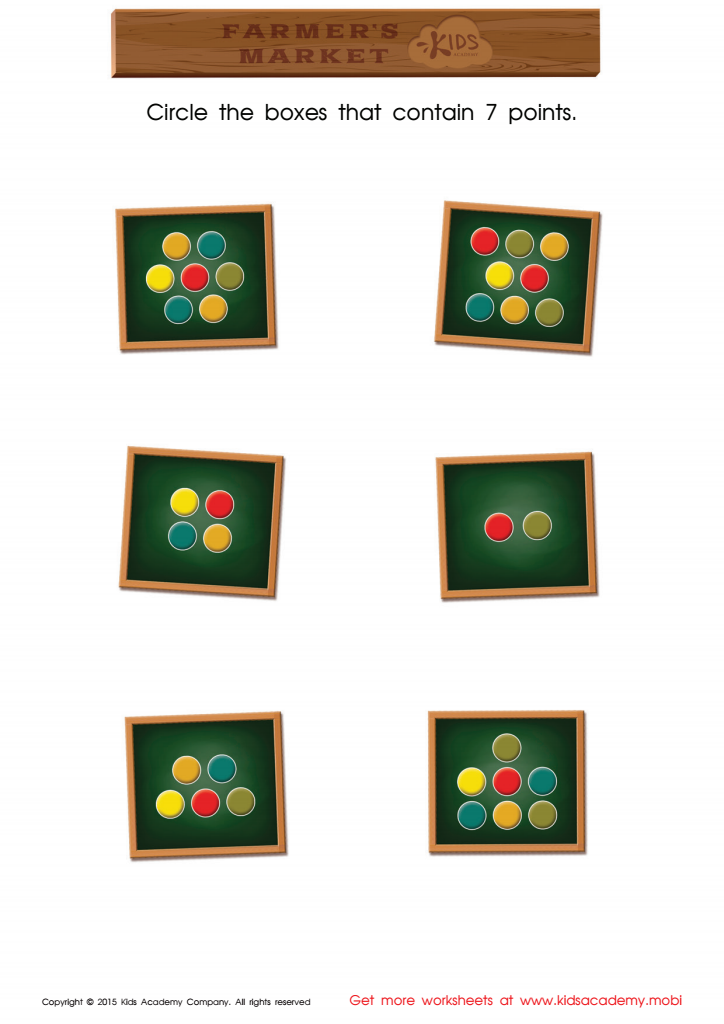

Count and Match Points 7 Math Worksheet
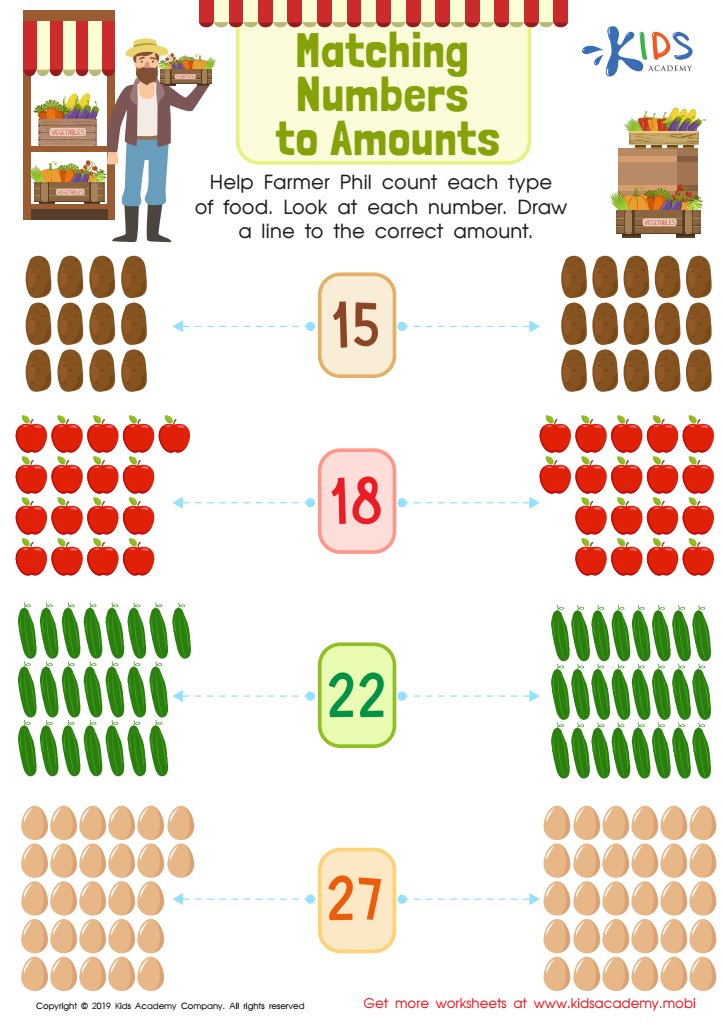

Matching Numbers to Amounts Worksheet
Matching skills and foundational math concepts are vital building blocks in early childhood development for ages 3 to 5. Parents and teachers should prioritize these skills because they lay the groundwork for more advanced mathematical thinking and problem-solving abilities.
In the early years, children are naturally curious and rapidly developing cognitive functions. Matching activities cultivate attention to detail, improve memory, and promote classification abilities, which are crucial for recognizing patterns and understanding relationships between objects. These skills directly transfer to mathematical competencies such as sorting, counting, comparing sizes, and recognizing shapes and numbers.
Engaging young children in matching games strengthens neural pathways that support multiple intelligences, including logical-mathematical and spatial reasoning. The confidence and joy derived from successfully completing matching tasks encourage a positive attitude towards learning. Additionally, these activities can enhance language development through discussions about similarities and differences and bolster fine motor skills through manipulation of objects.
Creating a strong foundation in these early years equips children with the necessary tools to tackle more complex mathematical concepts in higher grades. By investing time and resources into developing matching skills through playful learning, parents and teachers set the stage for academic success and a lifelong love for learning and exploration.
 Assign to My Students
Assign to My Students
